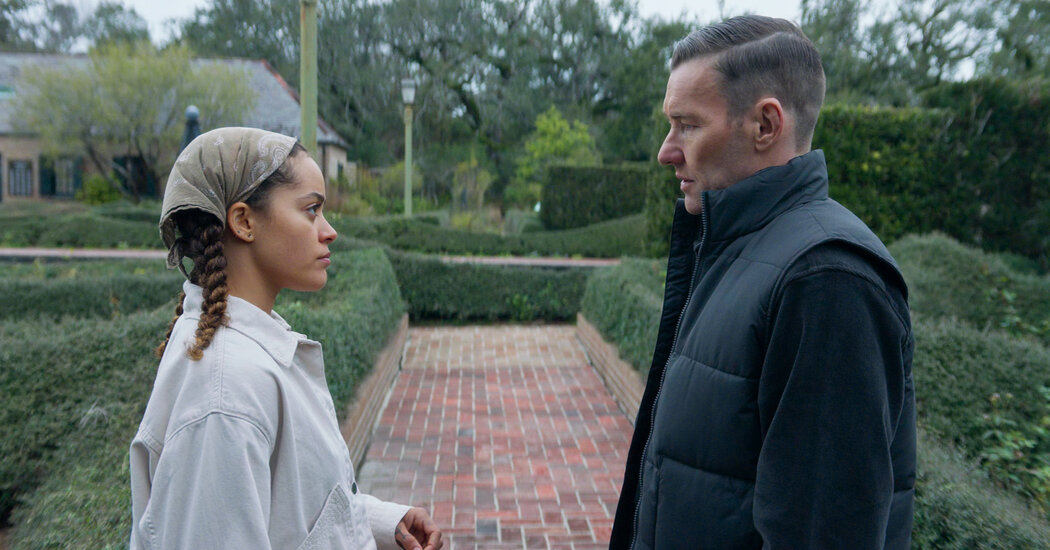
Part of the kick of “Master Gardener” is that the writer-director Paul Schrader manages to pull off this improbable movie. It shouldn’t work and, even after seeing it twice, I don’t think that it entirely does, which only makes it more fascinating and strengthens its power. There’s much to admire about the movie’s tense dreaminess, its pulpy undertow and severe elegance, as well as the astonishing, awkward sincerity with which Schrader hurdles headlong at questions of love, hate, race and redemption in an unforgiving world.
As has been the case in many of Schrader’s stories, this one centers on a man who’s of this world and apart. That character — “God’s lonely man,” as he’s called in “Taxi Driver,” which Schrader wrote — has appeared repeatedly in his filmography. That lonely man is here again, risen once more in “Master Gardener,” but now named Narvel Roth and played like a clenched fist by Joel Edgerton. Stoic, driven and watchful, Narvel works as the chief horticulturist for Gracewood Gardens, a cultivated wonderland someplace in the American South with fastidiously organized plantings and a shuddering chill in the air.
“Master Gardener” is the third installment in what Schrader has described as an accidental trilogy that began with his 2018 drama “First Reformed,” about a minister (Ethan Hawke) having a crisis in faith, and which continued three years later with “The Card Counter,” about a gambler (Oscar Isaac) with a brutal military past. In all three movies, a solitary, soul-weary man in crisis — who’s invariably seen alone in a room writing in a journal he shares in voice-over — undergoes a kind of transfiguration. Each man meets a woman who greatly moves him, and each also experiences purgative violence (oblique and disturbingly literal), and through both, each achieves grace or something like it.
Narvel doesn’t at first seem in crisis. The garden he tends is owned by Norma Haverhill, a vain, imperious doyenne played with terrifying hauteur by Sigourney Weaver. Everyone in Norma’s employ calls her Mrs. Haverhill, which with her eerie mansion — a plantation house — brings to mind a more put-together Southern Miss Havisham. The name Norma, on the other hand, seems an obvious cineaste nod to Norma Desmond, another wealthy woman rattling around inside the mausoleum that she’s made of her life. Unlike Desmond’s garden, though, Norma’s has not gone to seed, to borrow Schrader’s controlling metaphor, partly because Narvel is nothing if not an obliging worker.













